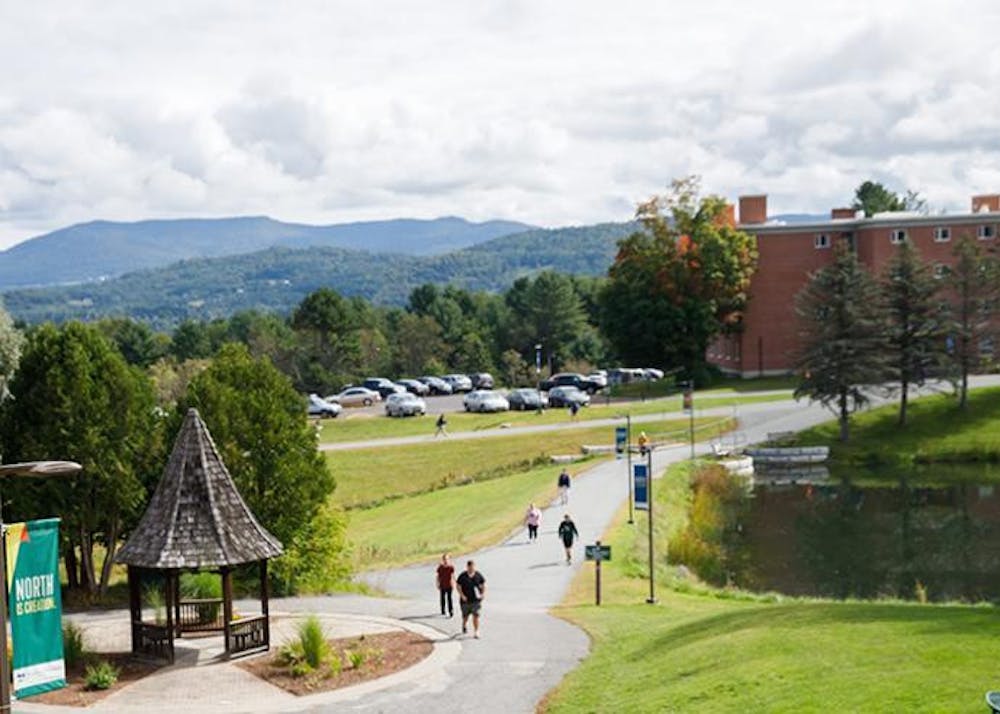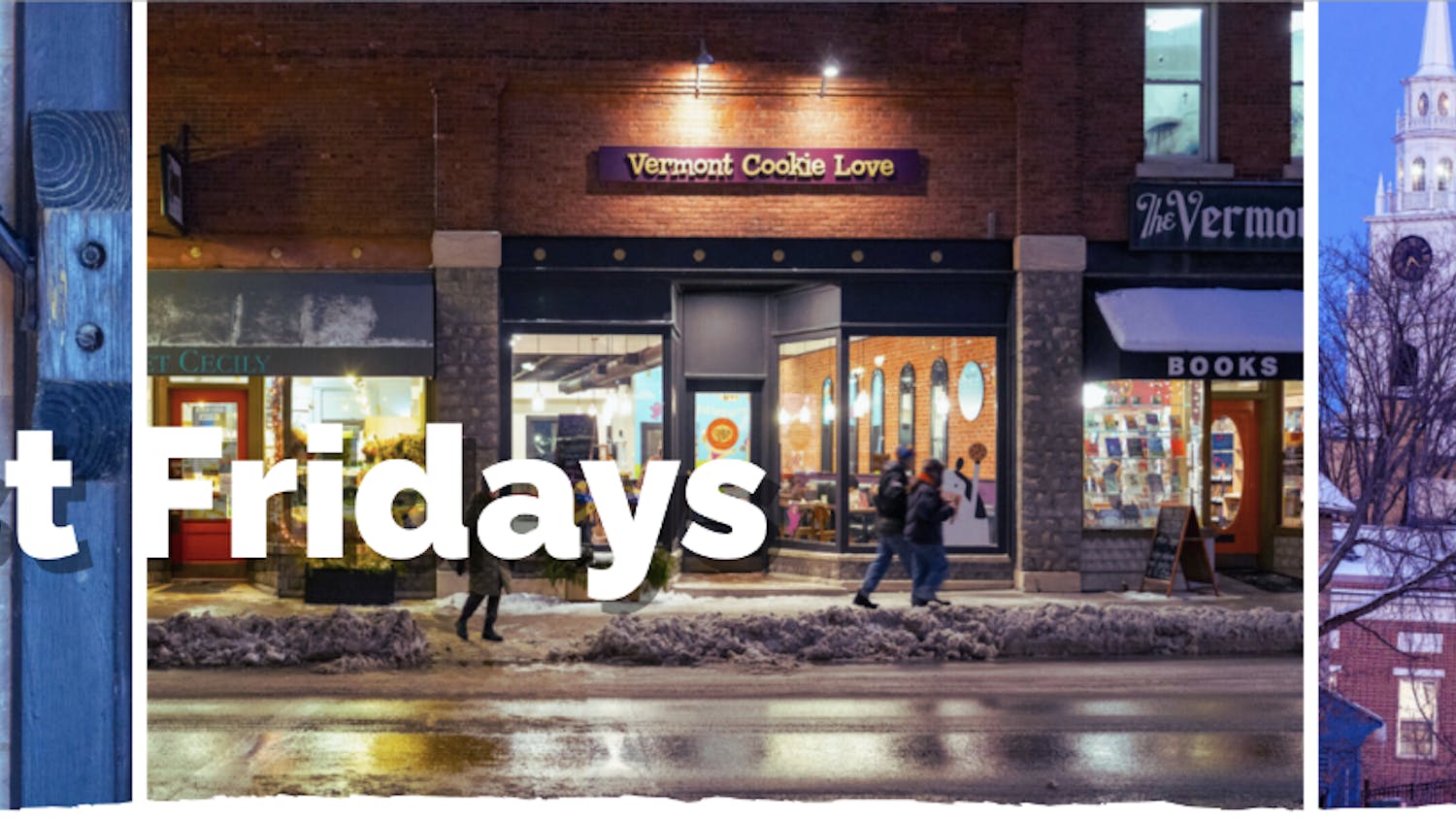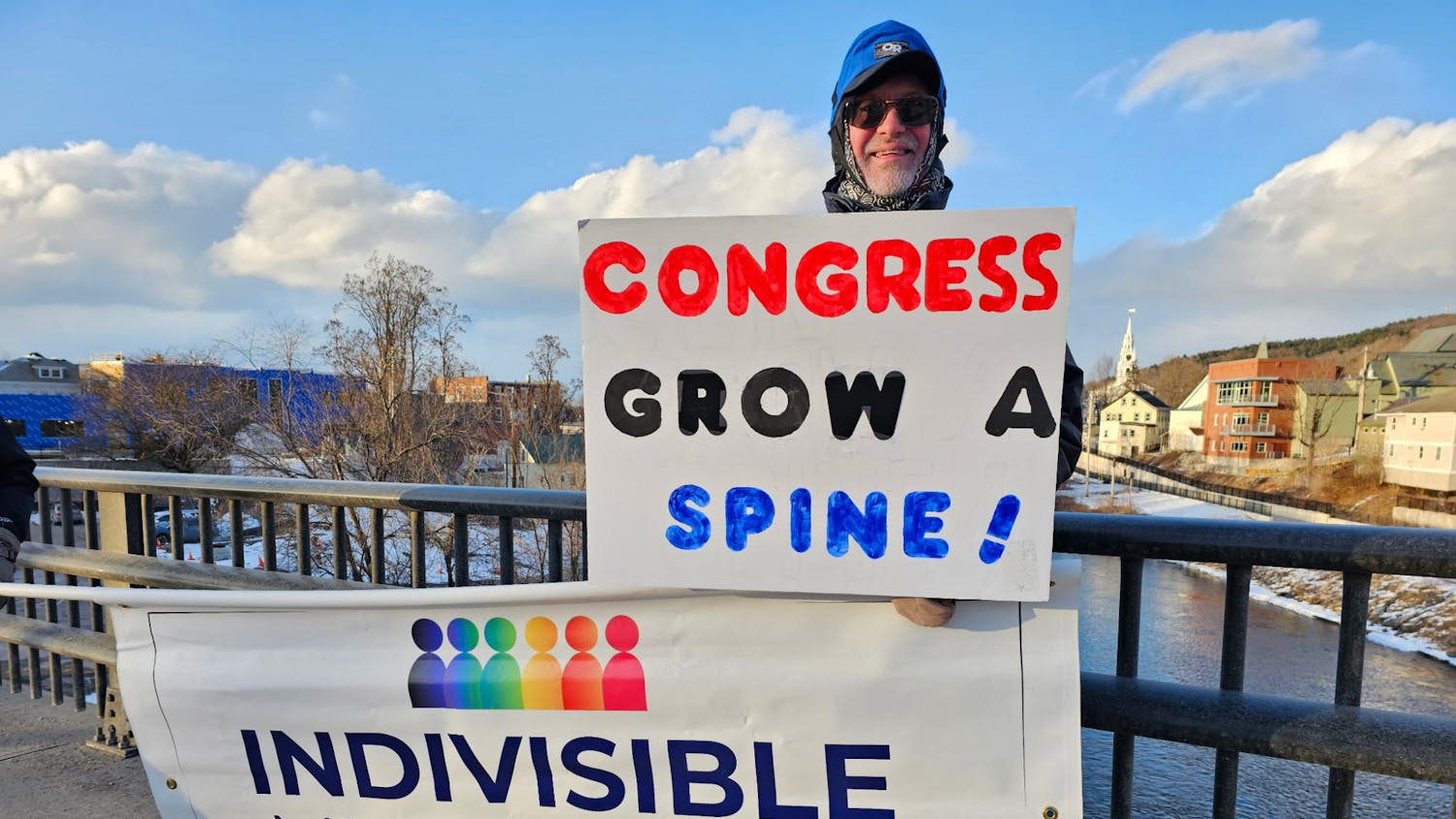Increased financial stress has put the future of three public Vermont colleges in question as the Covid-19 crisis continues to unfold. On April 17, Chancellor of the Vermont State Colleges System Jeb Spaulding announced plans to close both the campuses of Northern Vermont University (NVU) and the Randolph campus of Vermont Technical College (VTC). Deemed financially necessary, with projections of high deficits and particularly low enrollment, the plan was to be effective in fall 2020. Spaulding withdrew the plan for immediate closure days later amid public backlash, and announced his resignation on Tuesday.
Under Spaulding’s original plan, liberal arts programs at Northern Vermont University would be moved to Castleton University. Technical programs at Vermont Tech would continue, albeit in different locations, while its main Randolph Center campus would close. The colleges’ administrations would also be restructured. The consolidations would result in over 500 employee reductions altogether. In the wake of Spaulding’s resignation, the fate of the colleges remains unclear.
Financial struggles
The April 17 press release from the Vermont State Colleges System explained that the Covid-19 crisis will exacerbate a long history of financial struggle within the system, and that these challenges demand a major reorganization. Projections estimate an operating deficit falling between $7–10 million this fiscal year; $5.6 million of that deficit will come from refunds issued to students following the shift to remote learning. For the 2021 fiscal year, Spaulding forecasts a deficit of nearly $12 million even with “substantial” budget cuts. Furthermore, residential campuses of VSC are expecting expected to see a 15–20% decline in enrollment if they remain open.
Significant financial issues were a major concern even before the Covid-19 crisis introduced further complications. A white paper released by the chancellor’s office in August 2019 outlined challenges such as the level of state funding and demographic shifts. The report cites data that Vermont ranks 49th in the country in state funding for full-time students. State appropriations have also declined significantly as a revenue source since 1980, according to data provided in the report. In fall 2018, VSC requested $25 million in additional funds on top of annual appropriation. The state legislature ended up providing an additional $2.5 million.
The report also focuses on shifting demographics as a major challenge to small New England colleges. The number of Vermont high school graduates has decreased by 25% in the past 10 years. Births in Vermont have been in steady decline, and 2015 saw the lowest birth rate since the start of the Civil War. The report indicates that demographic trends are unlikely to change soon.
These demographic trends translate into declining enrollment, a key contributor to the colleges’ financial struggles. In the past five years, enrollments have declined at every VSC college except Castleton. There were 540 empty beds in the VSC system for the 2018–2019 academic year, which represents a 20% vacancy rate. In addition to demographics, the report cites competition from online education providers like Southern New Hampshire University, exacerbating declining enrollment.
Public backlash
The chancellor’s plan was met with a surge of mobilization and public backlash in the days following the announcement. Protests are taking place online across New England due to Covid-19 restrictions, though some protesters are also demonstrating offline.
A Facebook group protesting the closure, started by Ben Luce, a professor of Physics at NVU-Lyndon, has since grown to more than 10,000 members. “Most of the effort is focused on contacting legislators and the Governor, and raising public awareness as well,” Luce explained in an email.
Since the state has already downsized its programs, state funding is the obvious solution for Luce. At the least, Luce would look for the legislature to appropriate an increase of $25 million in funding. “Such an investment would pay itself back many times over,” he wrote. Luce believes that the legislature is not meeting state law which requires public colleges to be funded “in whole or substantial part” by the state. Currently, only about 17% of VSC’s revenue comes from the state.
Patrick Wickstrom, a student at NVU-Lyndon, formed an online petition protesting his school’s closure, which has garnered nearly 50,000 signatures. A member of the men’s tennis team and residential life at NVU, Wickstrom explained that closure would be “simply devastating'' to faculty, staff and students. “A lot of people are connected to this school and the institution, and were very disheartened to see this even remotely be a proposal,” he commented.
Wickstrom was concerned about the uncertainty of the chancellor’s proposal. Wickstrom, who is double-majoring in Climate Change Science and Atmospheric Science, does not know whether his program could continue at Castleton. “I know a lot of students personally in my program who would have transferred schools or put a hold on college,” Wickstrom said.
A perfect storm
State Senator Ruth Hardy (D-Addison), a resident of East Middlebury who has worked in education and serves on the Education Committee, agreed that state funding for higher education is a major issue. Since taking office in 2019, Hardy has pushed for scholarship funding to increase enrollment at Vermont’s public colleges.
Hardy notes that Vermont has a particularly strong K-12 education system, but is not doing enough when it comes to its colleges. “We have one of the highest high school graduation rates in the country, but we do not do a very good job of getting those high school graduates to go to college,” she said.
Covid-19, she explained, has put the chancellor in a difficult position. “For institutions like the state's colleges, which were already vulnerable and already sort of deterring, the Covid crisis is just absolutely devastating.” Hardy concludes that demographic challenges, insufficient appropriations and the Covid-19 situation amounted to a “perfect storm.”
However, Hardy feels that higher education issues in the state have been prevalent for many years, noting the closure of four private Vermont colleges in 2019 and 2020. “I feel like we need to have a broader conversation about higher education in Vermont in general,” said Hardy. She hopes to help public and private institutions towards a more sustainable future.
Hardy and others stress the value of the state colleges in rural and economically challenged regions of Vermont. Caledonia County, where NVU’s Lyndon campus is located, sits at 12 out of Vermont’s 14 counties for per capita income.
“The colleges provide a higher education opportunity for those who wouldn't otherwise have it, and they are also economic drivers for the region,” said Hardy. According to her, Vermont State Colleges educate many lower-income and first-generation students.
Luce agreed that keeping the State College System intact would boost Vermont’s economy after the Covid-19 outbreak subsides.
“The truth is that our state colleges are actually fantastically efficient institutions that provide enormous and direct economic benefit to our state,” he said. “Energizing [state colleges] going forward would be an enormously effective way to both keep young people in our state and help with the recovery from this terrible pandemic.”
Luce explained that the colleges both produce a multitude of jobs and foster students who will later work in the community. Wickstrom said that Burke Mountain relies upon Lyndon students for its winter operations.
“I don't know what better investment that the state has,” Wickstrom said of the state college system. Wickstrom cites a statistic that the two NVU campuses bring $113 million per year in economic outlook, a high “return on investment” from state appropriations.
Looking ahead
Although the original closure plan has been shelved, an aggressive response continues. Wickstrom is planning to work with a larger group to present before the VSC Board of Trustees. Luce plans to continue to advocate for NVU and the other colleges, but acknowledges that damage has already been done. “The proposal has already severely damaged our prospects for enrollment next year,” he said. Many colleges, including financially stable institutions, are already predicting lower enrollments because of Covid-19.
The VSC Board of Trustees originally planned to meet in a special meeting on April 27. This meeting was canceled, and the Board will meet at a later date to discuss the decisions ahead.
Editor’s note: Ruth Hardy is married to Middlebury College Professor of Film and Media Culture Jason Mittell, who is the Campus’s academic advisor. All questions may be directed to campus@middlebury.edu.
Jack Summersby is a local editor.




